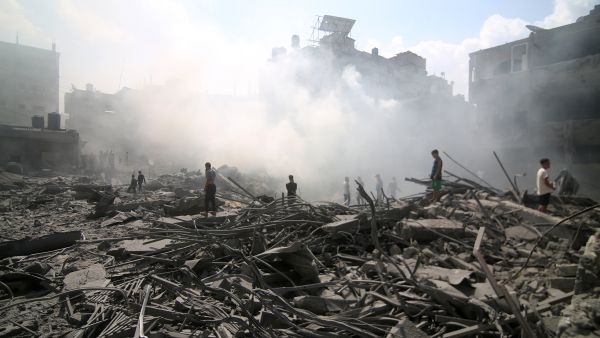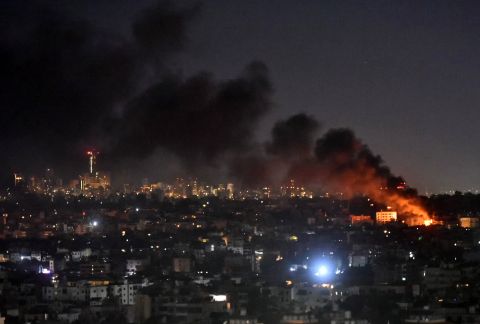ALBAWABA - Local media reported Monday that Israel has submitted a ceasefire agreement that excludes the Israeli army's withdrawal from Gaza.
The Israeli Public Broadcasting Corporation (KAN) reported that the plan involves a brief ceasefire in exchange for the release of many Israeli hostages in Gaza.
KAN reported that Israeli Prime Minister Benjamin Netanyahu sent Ronen Bar, the head of the Shin Bet internal security organization, to Cairo to discuss the issue with Egyptian officials.
According to Israel's Walla news website, Bar submitted a request at a Cabinet meeting from Egypt's General Intelligence Service (GIS) chief, Hassan Mahmoud Rashad, to commence cease-fire talks.
According to Walla, the latest Egyptian offer contains the rough outlines of a small agreement with the Palestinian organization Hamas in which several Israeli hostages would be released in exchange for a few days of ceasefire.
The Egyptian side and Hamas have yet to respond to Israeli media reports on the potential Israeli ceasefire arrangement.
Al-Aqsa Flood operation against Israel
Hamas military group announced on Oct. 7 a military operation called "Al-Aqsa Flood" against Israel which is the biggest offensive in decades.
Palestinian fighters “infiltrated” Israel from the Gaza Strip and captured military bases and took hostages as photos and videos went viral online showing Hamas fighters on vehicles inside Israel and others paragliding into occupation territory.
In response, Israeli armed forces announced targeting Hamas positions inside the Gaza Strip. Thousands were killed, and dozens of thousands of others were injured in the Israeli attacks on the Gaza Strip.
The latest statistics by the Ministry of Health in Gaza revealed that the death toll from Israeli brutal pounding on the Gaza Strip since October 7 has soared to 42,718+ people, with more than 100,282+ injuries.
Since then, approximately 85% of Gazans have been displaced, all of whom are suffering from severe food insecurity, and the healthcare system has collapsed. Hundreds of thousands of people lack shelter, and aid trucks are entering the area at a lower rate than before the conflict began.








